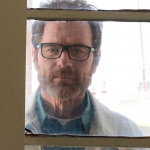You might have seen this cute and insightful post at Wait But Why a few weeks ago. It puts “generation y yuppies” in historical context in order to explain why they are so unhappy.
It begins with generations before, with the one that survived the Depression and defeated the Nazis. These gritty Americans saw their hard work come to fruition just as the United States became history’s richest economic power. They watched their children climb the class ladder. Dad built the Hoover Dam, junior was an engineer designing hydroelectric power plants, that sort of thing.
This naturally led the second generation to believe that hard work and Americanism were a sort of formula for success. And in a lot of cases, it worked. Junior ended up richer than his parents taught him to imagine, because everyone was getting richer for a while there. Some of these people hired full-time maids! What captured our imaginations was this idea that each generation would find itself successively higher class and happier than the last. So if second-generation Dad is a hydroelectric power plant designer, the third-generation junior’s target should be higher, perhaps to be the UN High Commissioner on Sustainable Energy, or something. But then life unfolds, and he “only” ends up doing the same job as his dad, so he mopes. The universe has obviously failed him.
Add to all of this the new public self, and we’re in for a psychological disaster. The social media versions of ourselves that we project to the world are, usually, carefully crafted to glorify us. We all know it. But still, when we see a picture of our friend with that famous person we admire, we imagine that they are chummy and that this is a snapshot of one of their many long conversations. Your friend probably had exactly 10 seconds with famous politician/actor/author/singer. Worse, your college friend starts drawing a reasonable paycheck and posting snippets about high-level meetings or being in court or resuscitating a kitten, not to mention the pictures of the new bourgeois McMansion.
This all rings true as description or as diagnosis of the particular breed of special snowflake we find running amok today. I fear the roots run much deeper, though, into the very organization of our 21st century world.
There is an institutional role in perpetuating the delusion. Institutions pushed public thought strongly toward an individualistic and atomized view of society. Consider the schools. The educational paradigm shifted drastically in the early 20th century, thanks in large part to the Deweyites. Education scholars committed themselves to building a new generation of democratic citizens (as unlike their parents as possible, as President Wilson is rumored to have said), relentlessly innovating the curriculum until they achieved such symbols of ridicule as “the new math” and teaching self-esteem lessons. Just when our despairing Generation-Y schoolchildren might have learned to adjust their expectations, or at least their estimates of their own abilities, we stepped in to tell them that they are as great as they thought they were despite the evidence to the contrary. Try to imagine a middle school teacher in 2013 saying, “Some of you will be receptionists when you grow up.”
As expectations and reality diverged, performance not unexpectedly flagged. The American economic boom was clearly leaving some behind, disturbingly in those pockets where people were poorest and least educated. Drugs and poverty plagued the cities and the rural poor. FDR had created an endless array of federal recovery programs, mostly to no avail, until the economy improved when America entered the war. Some combination of national federal activity had rescued the nation once—why shouldn’t it be able to do so again? The machinery of the State was brought to bear to remedy social problems in the form of things like the Great Society and the War on Drugs.
Meanwhile, Congress and the courts were working large-scale changes. Social ills were especially pronounced in regions where human beings had most recently been held as property. Congress aggressively passed Civil Rights legislation allowing people to file civil suits to vindicate their individual rights. The courts for the most part deferred to Congress, in some cases going far beyond what anyone ever thought was contained in the judicial power. The Supreme Court—what we might call the Brennan Court—placed a renewed emphasis on individual liberties. It is the individual who has rights against society; the prerogative of political communities to govern themselves was not an especially resonant theme.
All of these changes had the effect of destroying community. More distant and more invasive legislation took problems out of the hands of neighborhoods and towns. The incredible economic success of the average American in the mid-20th century converged with new American forms of feminism and socialism (hippies, college faculty) and progressivism. These forces taught us to cut ourselves off from another community—our forebears. Our traditions and heritage were largely things to be cast off, not sources of moral instruction and companionship. Chesterton’s democracy of the dead were disenfranchised and relegated to dusty corners.
So now in 2013, we are a field of atoms adrift in a sea of society. We impose ersatz forms of community on ourselves, groping for (and sometimes finding) it in social media, student clubs, church groups. But do we foray out from these engagements on our calendar, only to return to our castles at night and post pictures (only the good ones)? It is no wonder that even many Christians are startled by the claim that marriage is, socially, something other than the convergence of two people’s preference for one another. Even our most communal and fundamental bond has been cast in the mold of the individual, of the superindividual—supermen and superwomen whose volition is the object of reverence.
I am not hopeful that there will be anything like a revival without the restoration of community. From a sociopolitical perspective, it is perhaps the sole desideratum for human flourishing. Even if the Spirit of God should work a revival according to His supernatural purposes, I cannot imagine new forms of community will not accompany it.











